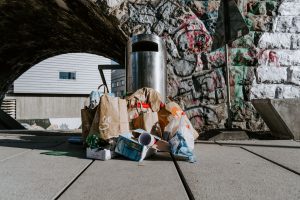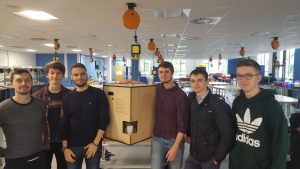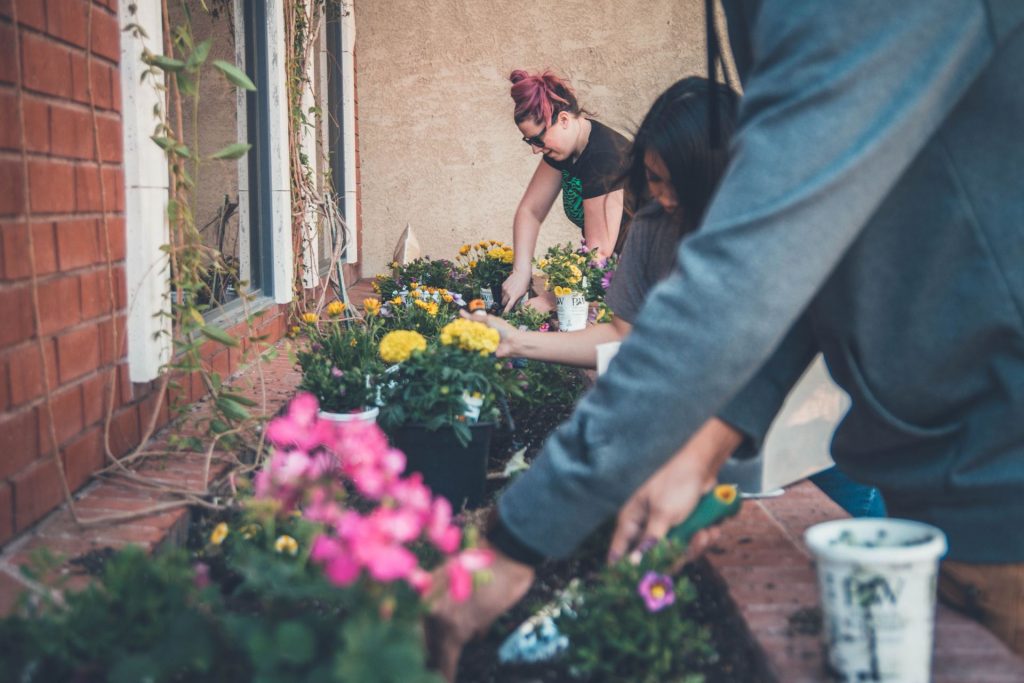Hello, my name is Lottie, and I am a first-year student, studying French and Spanish. In support of the Climate Emergency Day of Action, I have considered how we can slightly alter our daily routines so that we live more sustainably and ultimately combat climate change. Here are my top 10 tips for living an environmentally friendly life at university!
 1. Natural toothbrushes
1. Natural toothbrushes
We can start helping the planet as soon as we wake up in the morning. Most toothbrushes are made of plastic, which is a material that does not decompose. This means that every single plastic toothbrush we have ever used is still on this planet right now! As a result, many people have started to use organic bamboo toothbrushes instead. These toothbrushes are biodegradable, and they also often arrive in sustainable packaging. As well as this, studies show that they can whiten your teeth and improve your oral hygiene. It’s a win-win!
2. Reusing in the kitchen
After brushing your teeth, you might be tempted to have a smoothie or an iced coffee to start your day. Although it is tempting to use plastic straws, many people do not realise that after using them, they often end up in oceans and waterways, harming wildlife as well as contributing to pollution. Metal straws are an excellent substitution because they are reusable which means they can help you save money, as well as combating climate change. If you get thirsty during the day, I would also recommend that you bring a reusable water bottle with you. There are lots of water fountains on campus and this is a money-saver as well!
3. How should we commute?
It is important to consider how we should travel to university if we want to live sustainably. The fuel from cars has a huge negative impact on the environment, which is why it might be better to car share with your neighbours if you are all heading in the same direction. However, the best modes of transport, which are environmentally friendly, are walking or cycling. Maybe you could challenge yourself and try to walk everywhere for a week? Who knows, you might enjoy it.
4. Sustainable studying
While you’re at university, I would recommend that instead of using Google, you use a search engine called ‘Ecosia’. Ecosia uses its income from advertisements to plant trees across the globe. Therefore, whenever you click ‘search’ you are essentially saving the planet!
5. Go paperless
With the recent advances in technology, it is surprisingly easy to go paperless. Rather than printing out pages and pages of articles and readings, maybe you could create a university folder on your laptop so that everything is easily accessible? Paper waste takes up the most space in landfills (also trees are chopped down to produce paper) so it is especially important that we do not overuse it. We can easily implement this throughout our daily lives too – when was the last time you actually needed a shopping receipt?
 6. Reduce waste
6. Reduce waste
Next time you’re buying fruit and vegetables, perhaps you could buy them in a 0-waste food store! These are shops which were specially designed to reduce waste. In Bristol, you can find them on Regent Street, North Street, Whiteladies Road and Gloucester Road.
7. Shopping bags
Did you know that all plastic bags in the supermarket cost at least 25p? This law was introduced in 2015 to reduce litter and general pollution and studies show that this has been successful so far. If you want to help the environment, whilst saving money, you can use your own bags to carry your shopping home. I would recommend foldable shopping bags (which you can find on Amazon) because you can easily store them in your university bag during the day.
8. Where to buy clothes?
Fast fashion is a huge problem for the environment. Brands such as Zara, H&M and New Look all contribute to the pollution of water and produce waste, due to the manufacturing process of clothes. Therefore, as students, we can easily buy our clothes elsewhere so that we can live more sustainably. As well as apps like Depop and Vinted, there are various vintage and charity shops in Bristol which sell clothes which are in great condition and relatively cheap. I would recommend the Vintage Thrift Store on Park Street and Shelter in Clifton.
9. Reusable makeup wipes
At the end of a long day, if you’re a makeup user, it is always very tempting to use a wipe to remove that last bit of makeup off your face. However, due to the plastic packaging of these products, wipes can become very harmful for the environment. I would personally recommend using reusable makeup pads, which are made from organic materials, such as bamboo cotton. These can be found in the Body Shop and Boots – they are also great for your skin!
10. Sustainable shower products

Before going to bed, we must be mindful of the products we use. It has been scientifically proven that most shampoo bottles are not recycled correctly. Companies, such as Lush, have created products, like shampoo bars, which do not use plastic. According to the Lush website, almost 6 million plastic bottles have been used due to these shampoo bars! In 0 waste stores (mentioned earlier) there is also sometimes the option to refill your own shampoo bottles from home.
Thank you so much for reading my top 10 tips today! I hope that you learned something new! What are you going to implement into your daily routine to lead a sustainable lifestyle at university?






